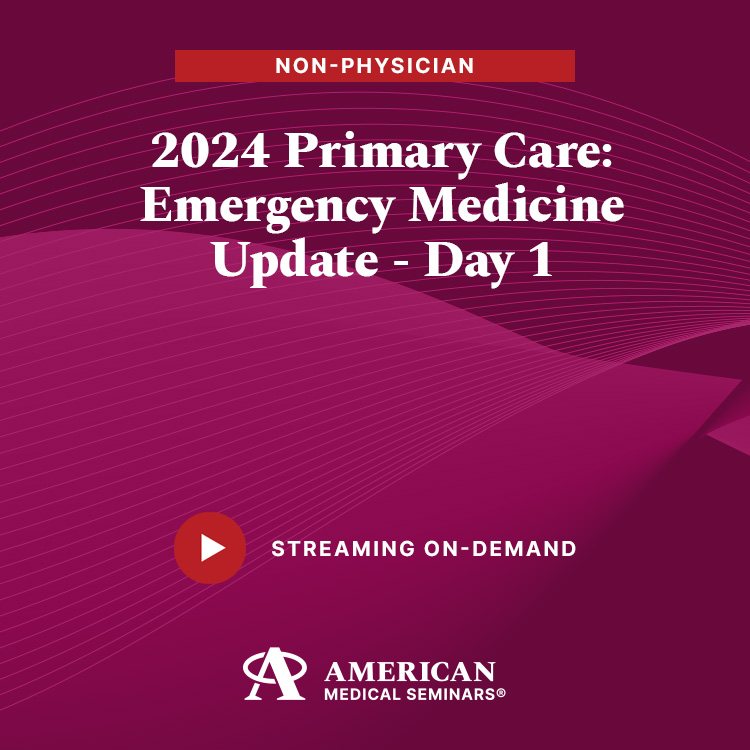Product Description
Title: 2024 Primary Care: Emergency Medicine Update – Day 1 (Non-Physician)
Faculty: Gary Vilke, MD; Michael Wilson, MD, PhD, FAAEM, FACEP.; Joe Nemeth, MD; Leslie Zun, MD, MBA
Release Date: 7/1/2024 Expiration Date: 7/1/2027
Day 1
Psychiatric emergencies
Attendees of this presentation should be able to:
- Differentiate how to evaluate psychiatric complaints
- Develop strategies to evaluate and treat common and uncommon psychiatric emergencies
Common office emergencies – shortness of breath, abdominal pain, syncope, seizures, endocrine, trauma
Attendees of this presentation should be able to:
- Evaluate common emergency conditions seen in the office
- Consider appropriate treatment of emergency conditions in the office
- Determine which patient needs to be transferred to the emergency department
Uncommon office emergencies – anaphylaxis, heat and cold, burns, bites and stings
Attendees of this presentation should be able to:
- Review uncommon emergencies that may present to an office
- Develop strategies to evaluate and treat anaphylaxis, poisoning, cold and heat problems, burns, bites and stings.
The Geriatric Patient with an Acute Presentation: It’s not Always a UTI
Attendees of this presentation should be able to:
- Develop strategy to properly assess and manage the challenging geriatric aged patient in a similarly challenging emergency department
Bad Headaches You Can’t Afford to Miss
Attendees of this presentation should be able to:
- Review rare but serious disease processes which can present with a headache
- List and explain investigation strategies which can be utilized to rule out serious causes of headaches
- The receipt for any incentive-associated purchase will designate the value of the gift card separately from the cost of the learning activity.
- This incentive may have implications on your tax reporting obligations. Any reimbursed amount must be declared as personal income for tax purposes.


